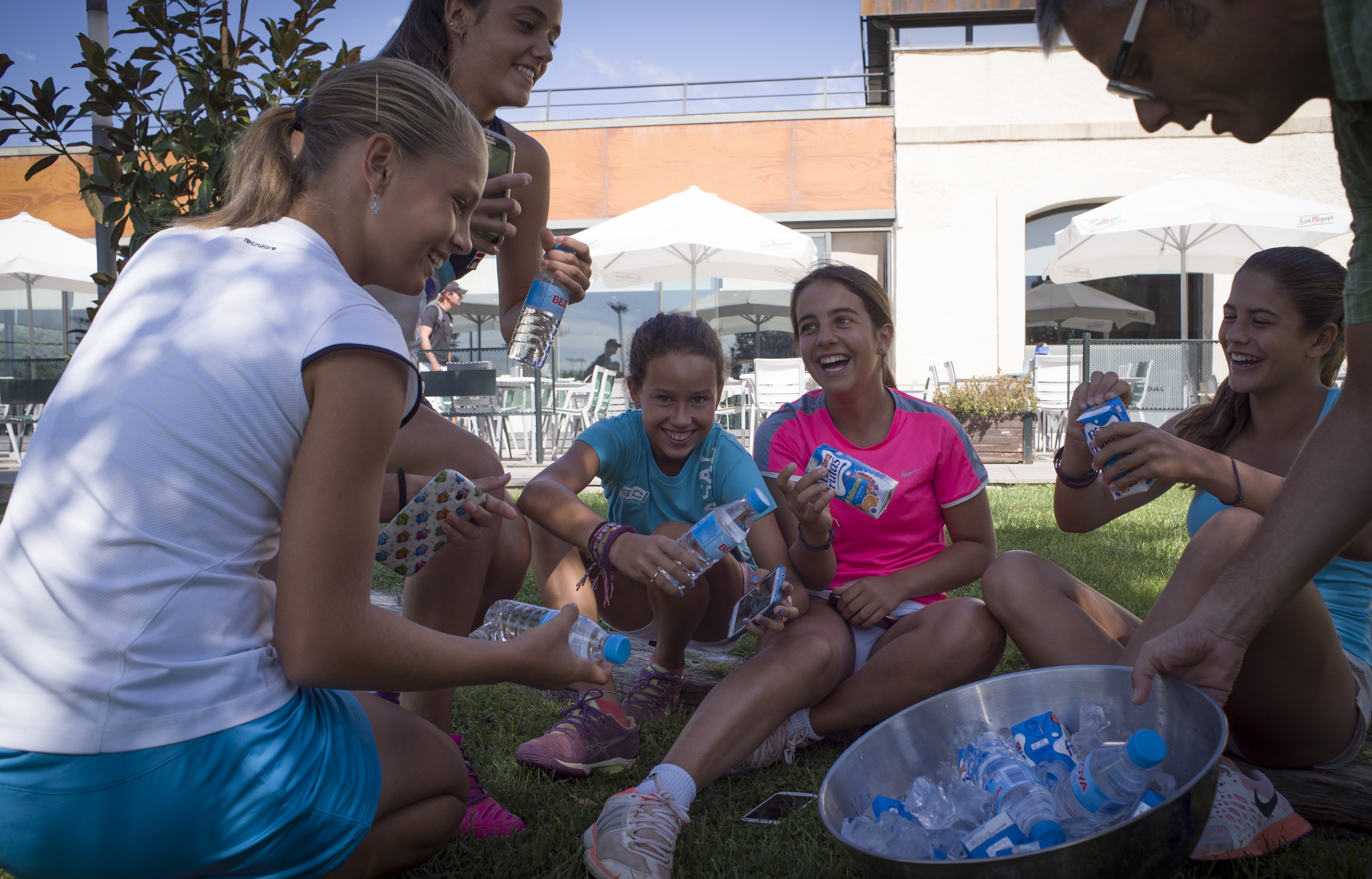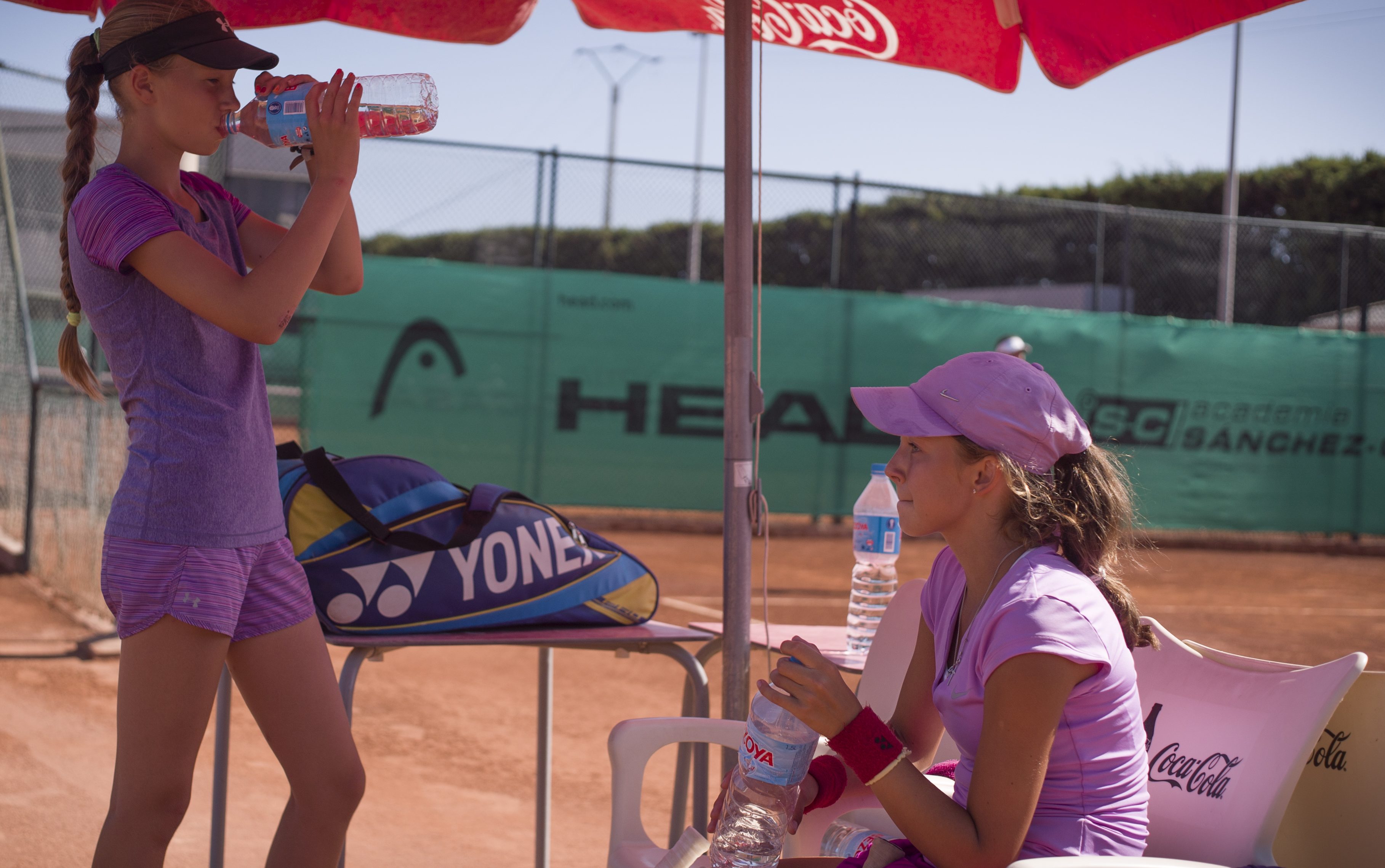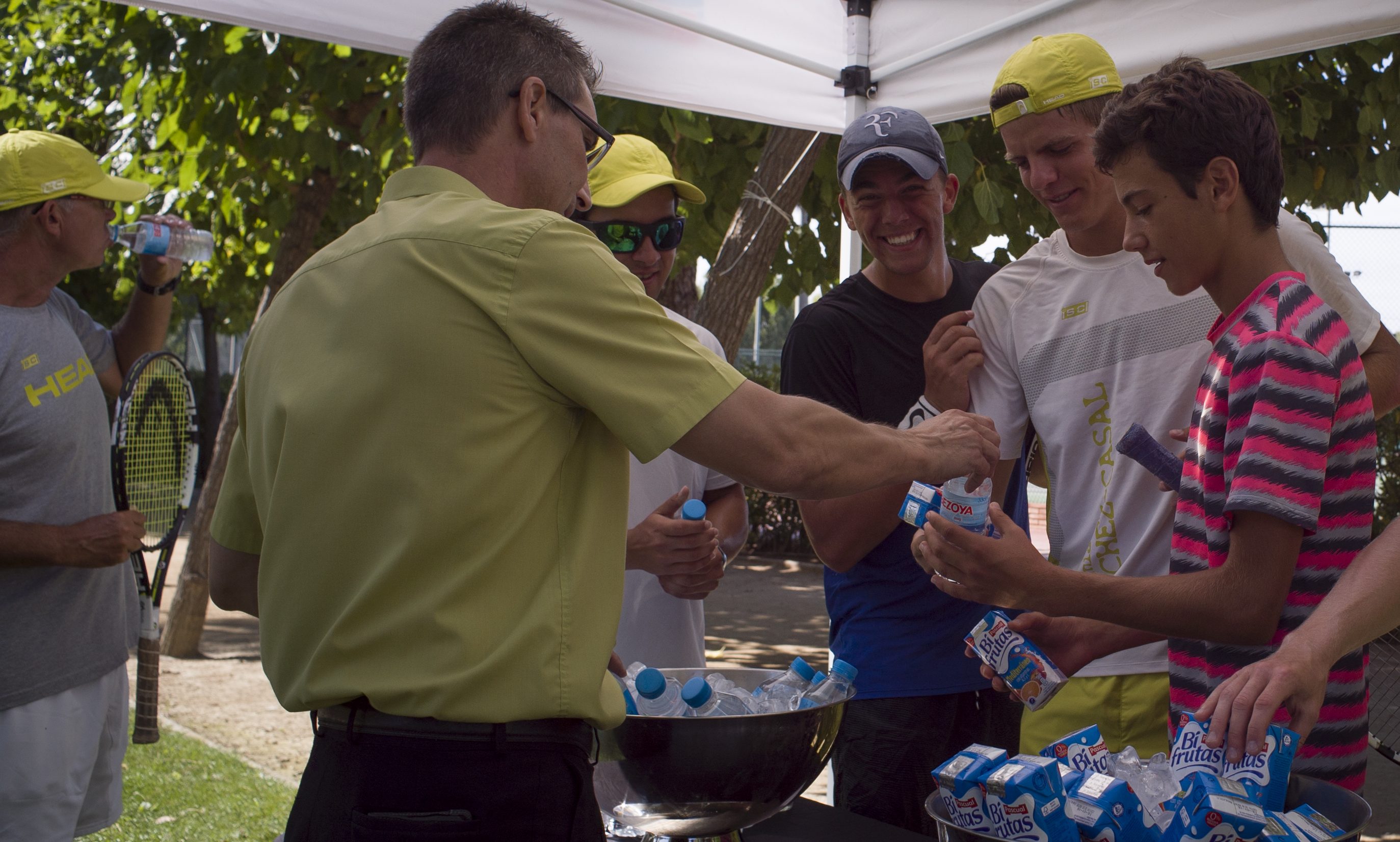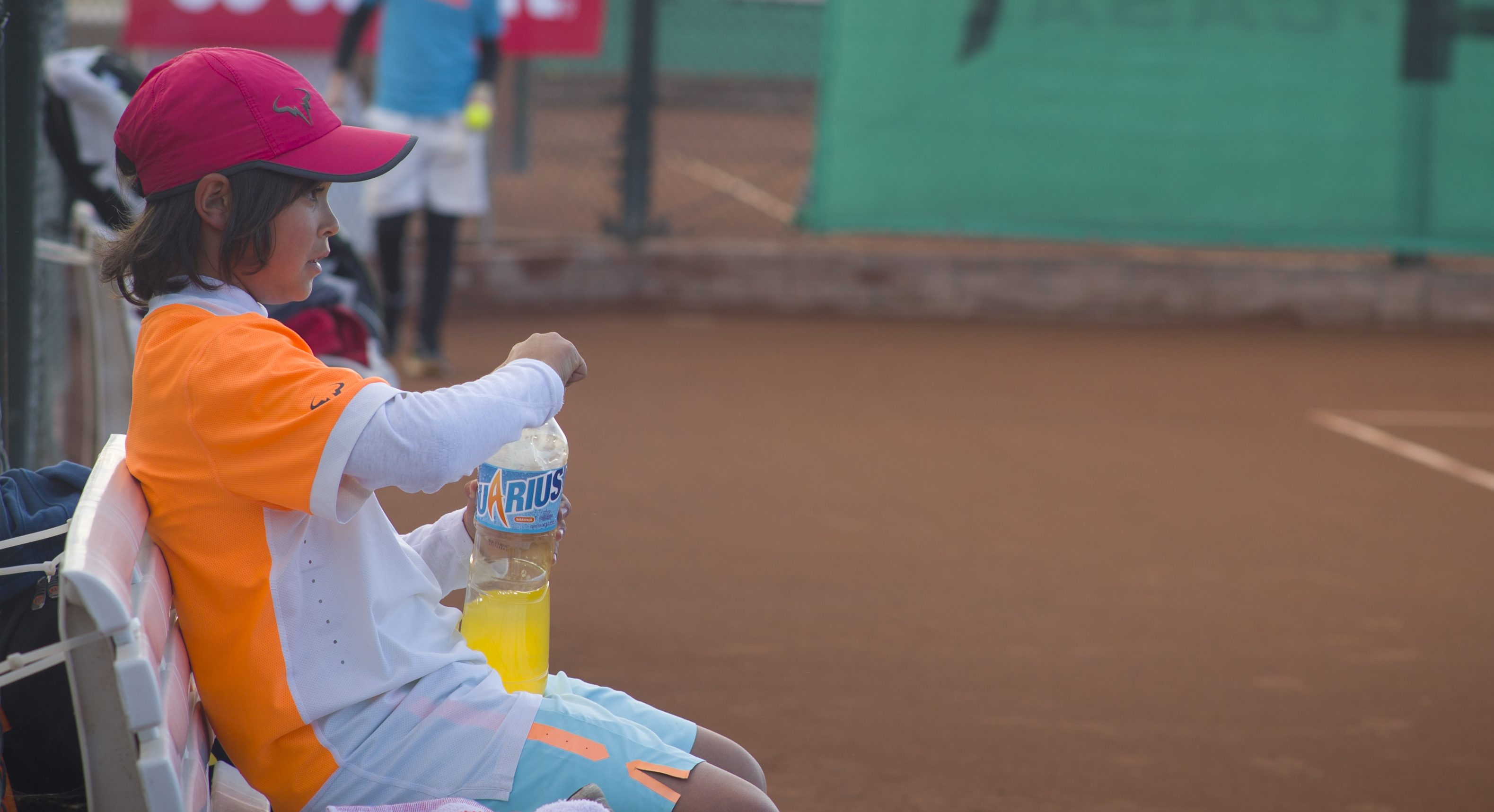
By Sergi Bonillo, Food and Beverage manager at Academia Sánchez-Casal, Barcelona.
Dehydration is the factor that has the most influence on the reduction of an athlete’s physical performance during exercise. But how does dehydration affect an athlete’s health? Here are some of the effects:
- Increases cardiovascular stress.
- Decreases the aerobic energy developed by the muscles.
- Decreases muscle strength and reduces skills level
- Decreases the thermoregulatory capacity of the body.
- Causes possible dizziness, cramps, upset stomach and increased body temperature.
- Causes possible organ failure or heat stroke.
- Moreover, the loss of 10% of total body liquid may cause serious, life-threatening risks.

During exercise we must rehydrate our body and restore proper nutrient and ion levels. This will balance out the fluids that were lost during the activity.
The amount of fluids lost depends on the individual and is determined by the type and especially the intensity of each activity. So, if an athlete finishes an activity with 1kg less weight than when the activity began, and during the activity consumes 1 liter of liquids, the total sweat loss is equal to 2 liters.
It’s important to know an athlete’s average amount of sweat loss during training, in order to prepare a personalized plan of liquid intake that fits his/her needs.

What kind of liquids should we consume during exercise?
- Drinks that contain between 6% and 8% carbohydrates.
- Drinks that contain electrolytes such as sodium and potassium.
- Drinks that are not carbonated.
- Drinks that have an enjoyable and appetizing taste.
What kind of drinks meet these requirements?
Sports drinks usually meet these requirements. It’s important to check the drink’s density of ions (osmolality of 270-330m0sm/kg) and the type of carbohydrates present in their composition. This is the main characteristic that will determine the drink’s quality, because the combination of carbohydrates and electrolytes in sports drinks is key to determining the absorption of liquids.

Carbohydrates also provide a great source of energy, which is particularly necessary given that the muscle glycogen supply runs low fairly easily.
If the intensity of our sporting activity begins to deteriorate, we could use other liquids such as water and juice.
General recommendations from the Sánchez-Casal Academy:
- It is not advisable to try sports drinks for the first time on the day of the competition as they could cause intestinal discomfort and, therefore, compromise the competition.
- It is not advisable to share bottles, in order to avoid the risk of any infections.
- You should start drinking between 30 and 60 minutes before the activity, sipping small amounts of liquid (200-300ml) every 15-20 minutes.
- You should consume a total of around 500-1,000ml of liquids per hour of exercise, and about 1.2-1.5 liters of liquid for each kilogram of weight lost.
Sergi Bonillo
Food and Beverage manager at Academia Sánchez-Casal Barcelona
















